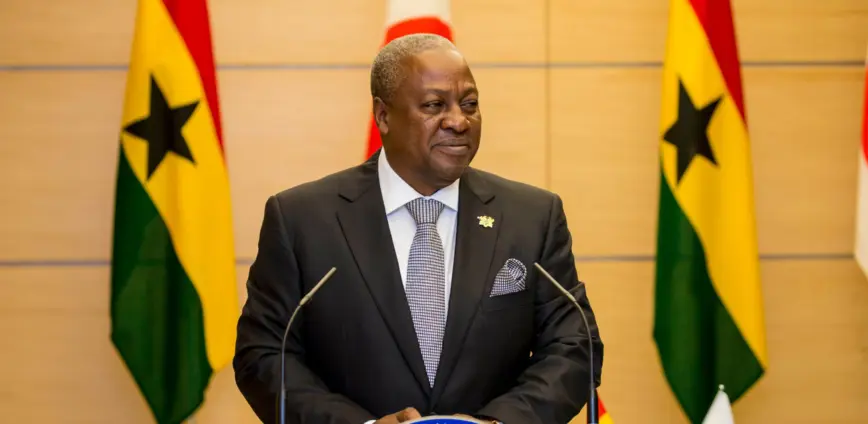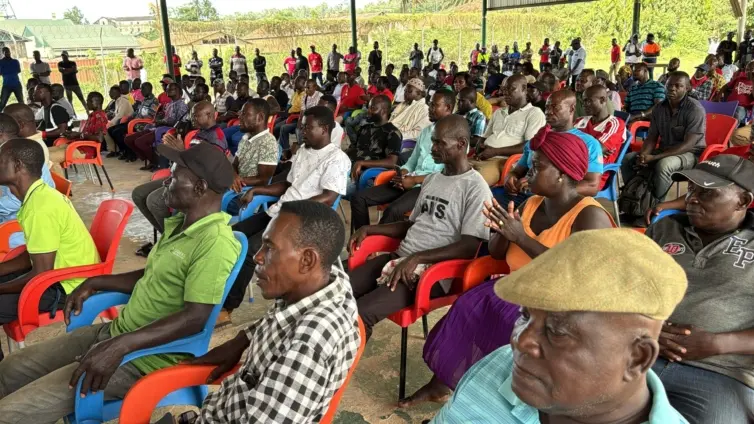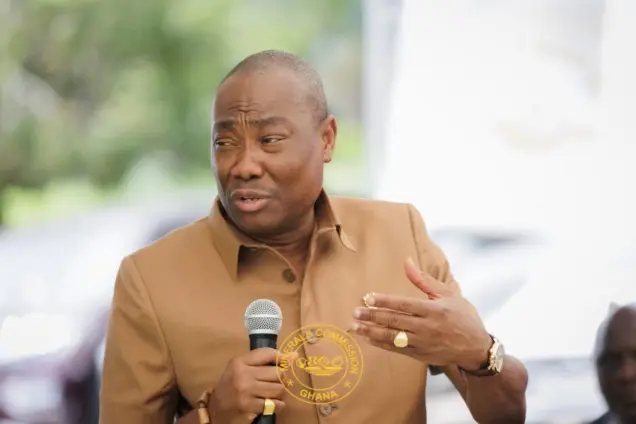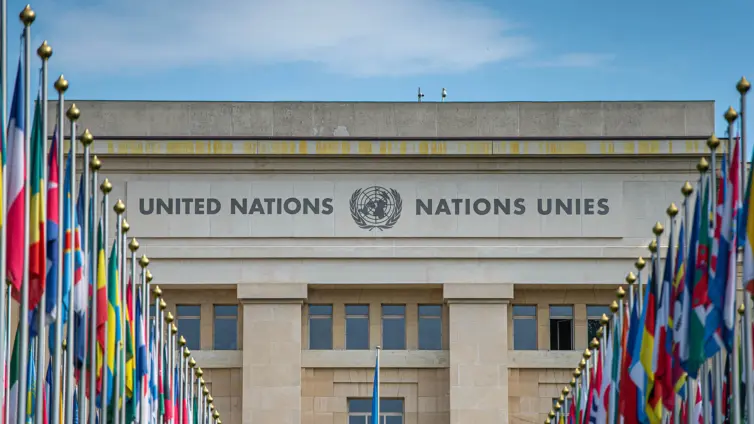Accra, Ghana — As a storm of public discussion swirls around President Mahama’s recent overseas travels, compounded by concerns over the Vice-President’s health, the specter of impeachment looms, raising critical questions about constitutional integrity and political stability in Ghana. Amanda Clinton, a prominent legal analyst, has weighed in, dissecting the legal and political intricacies of a potential Mahama impeachment. This article examines whether the legal grounds for such action exist and whether the political climate would allow it to succeed, probing the roles of key figures such as the Speaker of Parliament and the judiciary in this unfolding drama.
The core of the debate rests on whether President Mahama’s actions, particularly concerning the delegation of presidential authority during his absence, constitute a breach of the 1992 Constitution. Article 69 lays out clear stipulations for removing a sitting president, citing violations of the Constitution, instances of stated misbehavior, or an inability to perform the duties of office.
The central concern revolves around Article 60(8), which dictates the protocol when both the President and Vice-President are out of the country. Specifically, the question is whether the failure to formally designate an Acting President during President Mahama’s travels, especially given the Vice-President’s concurrent medical leave, represents a constitutional oversight. According to Amanda Clinton, such a failure could be construed as a violation of Article 1(2), potentially invalidating any official acts undertaken during that period.
“The critical question is: What concrete steps were taken to ensure constitutional continuity while the President was abroad?” Clinton posed, underscoring the need for transparency and adherence to constitutional norms.
While the legal framework provides a pathway for impeachment, the political arithmetic within Ghana’s Parliament presents a formidable hurdle. With a total of 276 seats, a two-thirds majority—184 votes—is required to impeach a sitting president. The National Democratic Congress (NDC), currently holding 183 seats, would need to experience significant defections from its ranks for an impeachment motion to gain traction. The New Patriotic Party (NPP), with 88 seats, and the four independents, would need substantial support from the NDC to reach the required threshold.
Given the current composition, Amanda Clinton suggests that unless a significant number of NDC MPs break ranks, the prospect of a successful impeachment remains highly improbable. “The numbers simply don’t add up unless there is a major shift in political allegiances,” she noted.
The Speaker of Parliament holds a pivotal position in the impeachment process. Mandated by Article 69(2)(a), the Speaker is required to refer any impeachment notice to the Chief Justice within seven days. However, this constitutional duty is intertwined with political realities. A Speaker aligned with the ruling party, such as the current Speaker from the NDC, could potentially employ procedural tactics to delay or obstruct the referral process. These tactics might include raising procedural objections, questioning the admissibility of motions, or strategically delaying proceedings to weaken momentum.
“A Speaker sympathetic to the ruling party could significantly influence the pace and likelihood of an impeachment referral,” Clinton explained. “Fast-tracking such a politically charged motion would be highly unlikely under such circumstances.”
Upon receiving a valid referral from the Speaker, the Chief Justice is constitutionally obligated to form a five-member tribunal to investigate the allegations. However, reaching this stage requires navigating a series of procedural hurdles and political dynamics. As Amanda Clinton points out, a compliant Speaker and a procedurally sound motion are prerequisites, conditions that are often challenging to meet in a politically charged environment. The Speaker could potentially question the admissibility of the notice, request revisions, or delay acknowledgment, thereby stifling momentum without directly violating the letter of the law.
Amanda Clinton asserts that impeachment remains legally plausible if the allegations concerning the President’s absence and the alleged executive vacuum are substantiated. However, she tempers this assessment with a pragmatic view of the political landscape. Given the NDC’s majority in Parliament and the strong bonds of party loyalty, the likelihood of a successful impeachment is exceedingly low.
With parliamentary avenues potentially blocked, the focus has shifted to the broader public arena, judicial interpretation, and the exertion of civic pressure outside the confines of Parliament.
In the absence of immediate parliamentary action, public perception and institutional good faith become paramount. The judiciary, as the guardian of constitutional principles, may be called upon to restore clarity amidst potential instability. Strategic litigation, social mobilization, and civic education emerge as crucial tools for accountability when parliamentary routes are obstructed. These mechanisms empower citizens to demand transparency and adherence to constitutional norms from their elected officials.
“Constitutional order survives not only through law—but through collective vigilance,” Amanda Clinton emphasizes, underscoring the importance of active citizen engagement in safeguarding democratic institutions.
Ghana stands at a critical constitutional crossroads, marked by a series of events that raise concerns about the erosion of checks and balances. The NPP’s challenge to the Speaker’s declaration, which led to judicial review, has fueled debates about judicial neutrality. The current context, featuring the suspension of the sitting Chief Justice and potential impeachment proceedings against President Mahama, underscores the systemic challenges facing the nation. Amanda Clinton argues that the weaponization of governmental authority, contingent on political power, poses a significant threat to institutional independence.
“The real danger lies in the breakdown of institutional independence, leading to the end of checks and balances and the corrosion of constitutional culture,” Clinton warns. Such a breakdown could have far-reaching consequences for Ghana’s democratic stability.
Ultimately, constitutionalism hinges on restraint, tradition, and mutual respect among institutions, not solely on the letter of the law. As Amanda Clinton cautions, the true test lies in the actions that each branch of government chooses not to take. If these branches disregard their boundaries and overstep their mandates, the very foundation of the Republic is jeopardized. The future of Ghana’s constitutional democracy depends on collective vigilance and a steadfast commitment to upholding the principles of separation of powers. Only through such dedication can the nation navigate its current challenges and safeguard its democratic institutions for future generations.
By Amanda Clinton, Legal Analyst & Managing Partner, Clinton Consultancy. MSc. In African Politics (SOAS, London)
Image Source: MYJOYONLINE






















